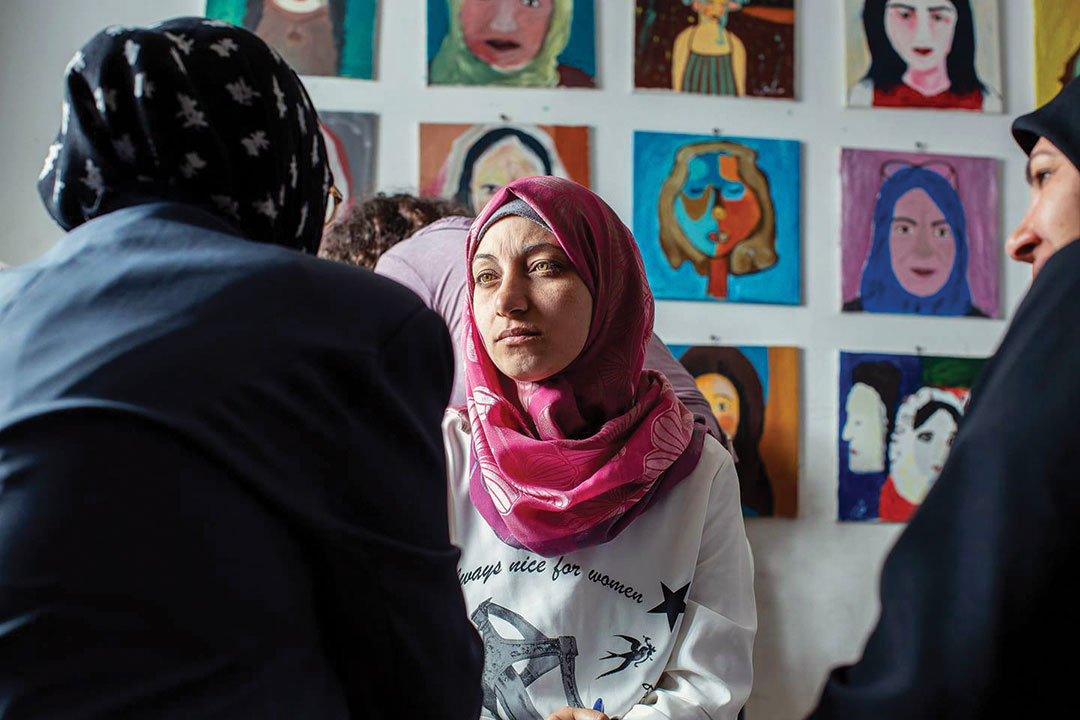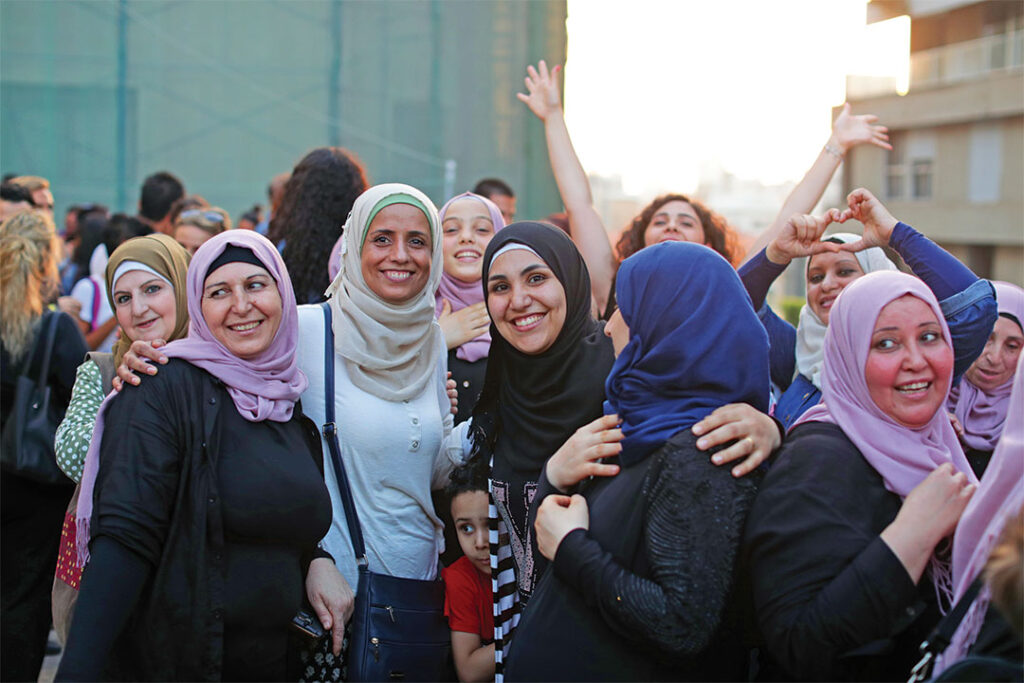Kuwait’s Intisar Foundation provides psychological treatment through drama therapy to Arab women affected by war
UNIPATH STAFF | Photos by The Intisar Foundation
The Middle East and North Africa region has witnessed war and armed conflict that have wrought havoc on countries and the victims within them. But while the world focuses mostly on physical destruction and bodily injury caused by war, it often disregards the psychological trauma that intensifies the suffering of people living in the region.
Unipath interviewed Her Highness Sheikha Intisar Salem Al-Ali Al-Sabah, president of the Intisar Foundation. The United Kingdom-registered charity, operating in the Arab world, has worked with hundreds of female refugees to address psychological disorders and trauma, helping to heal the scars of war.
Her initiative was the first and only one in the Arab world specifically created to support women traumatized by war. Despite the plethora of humanitarian organizations dealing with the deadly legacy of armed conflict, there was a shortage of programs focused on women who have paid a heavy psychological price.
When you meet Sheikha Intisar, you are soon reminded of the phrase “aptly named,” which Arabs use to refer to a name that is true to its owner (intisar means “victorious” in Arabic). She has sought to overcome the horrors of war and has smoothed and soothed faces etched by misery and grief.
Supporting women affected by war
Sheikha Intisar’s endeavors fall within a Kuwaiti tradition of helping refugees. She noted that Kuwait has hosted three conferences to support refugees and has participated in other international conferences to support Syrian refugees.
“Based on the suffering of refugees in the Arab region, I founded the Intisar Foundation in 2018 to support Arab female refugees and rehabilitate them through drama therapy,” she said. “The goal is to rehabilitate a million Arab women. We began work in refugee camps in Tripoli and Shatila in Lebanon, with an ongoing expansion of work in the Kingdom of Jordan and other nations.”

Drama therapy combines psychology and the use of theatrical techniques such as storytelling, role playing and improvisation to assist emotional healing and mental rehabilitation. Until the Sheikha started her foundation, drama therapy had never been widely employed in the Arab world.
The foundation receives donations to cover part of its costs, but half of its budget comes from jewelry sales by the Sheikha’s company, Intisars Luxury Jewelry. The foundation aims to train more than 600 drama therapists to aid women living in or escaping from war zones.
“The Intisar Foundation wants to help displaced women through therapy to get through the challenging time they have experienced and to view life from a new, optimistic perspective,” the Sheikha said. “Female refugees are trained and rehabilitated in new and innovative methods through drama, which provides them with a flexible approach to psychological healing.”
Circle of Love Book
Sheikha Intisar recently released a book titled Circle of Love that features the stories of 87 resilient and magnanimous women, including Her Highness Princess Dina Mired of Jordan; Tunisian model and actress Afef Jnifen; English model Yasmin le Bon; Omani artist Radhika Khimji; Maria Buccellati, president of a Paris-based fashion house; and Kuwaiti female personalities photographed by world-renowned photographer Max Vadukul. Proceeds from this book will go entirely to the Intisar Foundation.
The book’s concept emerged during a meeting between the Sheikha and Vadukul, a Kenyan-born British photographer who has taken impressive pictures of influential women around the world, including Mother Teresa and 21 other Nobel Prize winners.
It took two years to collect and arrange the black and white photos, and many of the accomplished women needed to overcome initial nervousness about appearing in a book.
“The idea for the book is based on showing powerful woman who tell stories of lost and found love,” she said. “The book contains female figures who hold status in their respective communities and discuss power and love.”

Focus on women
The foundation focuses on Arab women, although support is not restricted by nationality and religion. The Sheikha operates from the recognition that women are the cornerstone of families, shaping not just her own children but the wider community.
“Normally, women are the last to be cared for during and after conflict,” she said. “If we empower women, they will be able to support themselves and their families. Therefore, we will empower an entire society.”
Group therapy is a mainstay of the foundation, helping women to overcome depression, anxiety, and trauma linked to war and the difficulties of fleeing war zones and starting over in a new location. The foundation also provides a support network the women can access after completing therapy.
“Through the programs, we try to treat the wounds of trauma and fear which the affected women have in Arab countries afflicted by war, such as Lebanon and Jordan, where a large number of female refugees live,” she said.

